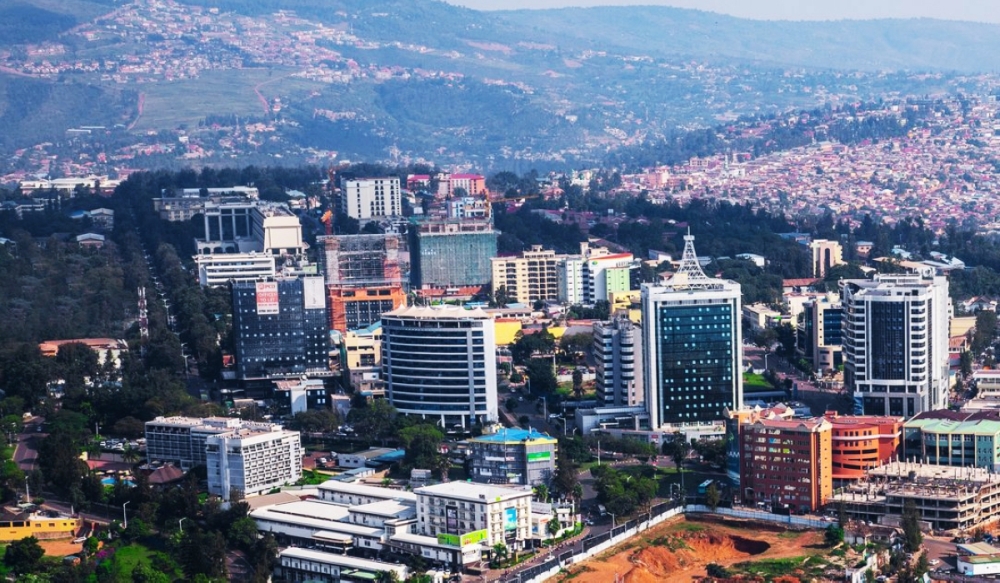

In the pages of our recent national history, we uncover an enduring narrative of resilience and triumph over adversity. Nearly three decades ago, Rwanda emerged from the shadows cast by one of the most harrowing tragedies in human history - the 1994 Genocide Against the Tutsi. This transformation was orchestrated by the Rwanda Patriotic Front, leading a liberation struggle that terminated decades of divisive politics. In the ensuing years, particularly at the dawn of the new millennium, remarkable progress has permeated every facet of our society, as numerous observers have acknowledged.
Extraordinary achievements span unity and reconciliation, the judiciary, security, law and order, healthcare, education, and economic development. Even the most sceptical observer would find it challenging to dispute milestones such as the remarkable average economic growth of 8 percent over two decades, especially when recalling that the country's GDP growth in 1994 was a staggering -50%. Life expectancy has surged from 40 years in 1995 to an impressive 69.6 years in 2022, with numerous other commendable accomplishments easily accessible through a simple online search.
One can only fathom the multitude of conflicting priorities confronted by the country's leadership, especially considering the international community's abandonment during its time of dire need.
Fast-forward a mere three decades, and the echoes of Rwanda's success resonate globally, a testament to the resilience of our people and, most significantly, President Paul Kagame's leadership. His guidance not only steered us through the darkest hours of 1994 but also embraced the infinite responsibility of a nation's rebirth.
Yet, within the jubilation of our achievements, a precarious complacency threatens to undermine the foundations painstakingly laid. It is a moment for introspection, a recalibration of our focus, and a renewed commitment to the principles underpinning our renaissance and sustained progress.
While revelling in success is human nature, we must not allow the allure of praise to blind us to persistent challenges, from hesitant leaders seemingly comfortable with the consequences of inaction to subpar service delivery in hospitality and, in some instances, life-threatening healthcare services as recounted recently during Rwanda Day in Washington DC. These instances serve as stark reminders that our journey is far from over. You see, this is not a call to assign blame but a plea to collectively confront reality and muster the necessary vigour to overcome these challenges. Accountability, a cornerstone of our progress, demands that we face our shortcomings with unwavering honesty.
To my generation, it is imperative that we move beyond the initial success, acknowledging areas where our efforts have fallen short and committing to doing better. This is not mere rhetoric but a living, breathing obligation to our well-being, exemplifying the passing of the torch from one generation to another.
Economic history provides valuable insights into the dangers of complacency, with multinational companies, some with a net worth tenfold ours, overlooking underlying vulnerabilities in the glow of success. The dangers of complacency are not theoretical, as demonstrated by recent examples like the demise of Nokia, Blackberry, and Kodak. These companies failed to adapt to changing market dynamics, technological advancements as well as customer preferences. These examples highlight the importance of continuous innovation, adaptability, and a proactive approach to our needs. In our case, our numerous achievements should not blind us to the need for continued vigilance, troubleshooting, strategic planning, and above all, implementation.
To address this, I propose a shift in focus - a reorientation of our national discourse to facilitate honest exchanges on matters of importance. Let us prioritise forums that candidly explore and expose the challenges we face, fostering an environment where constructive critique is not only accepted but actively sought. This does not diminish our accomplishments but strengthens our resolve to build a truly resilient and sustainable nation. "Kill complacency before it kills you," the late Steve Jobs once noted.
In summary, as custodians of our nation's future, we must lead with a commitment to accountability and a relentless pursuit of progress. Let us heed the warning signs, celebrate our achievements, but also acknowledge the work that lies ahead. Only through a collective commitment to confronting challenges head-on can we safeguard the legacy of the past three decades and propel our nation to even greater heights. Tube bato batari gito.
The writer is a Regional Policy and Strategy Advisor
Email: junior.mutabazi@yahoo.co.uk
Follow: @JSabex


